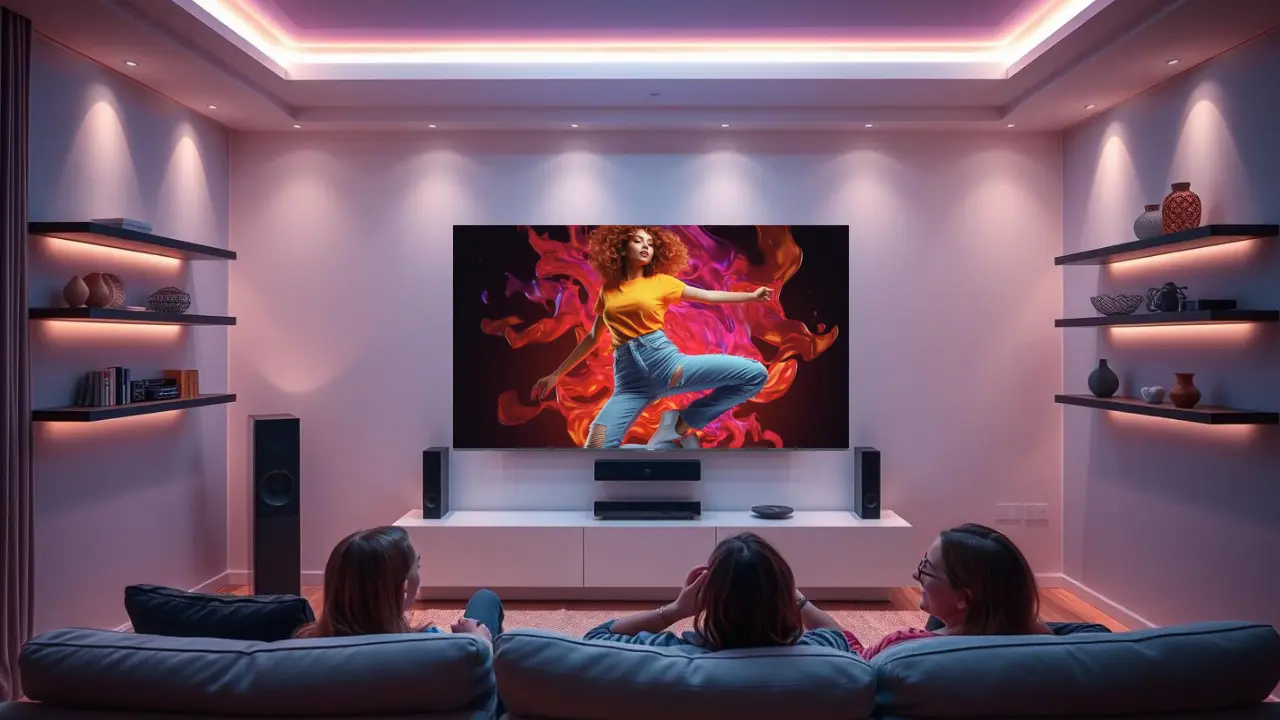Have you ever experienced blurry or jittery TV scenes? It doesn’t have to be an extravagant car chase or a thrilling football match. A blur can affect even the best televisions. It’s not only about the size or resolution of a TV anymore. The most important factor when talking about a cooling viewing experience is how well a TV manages motion, and that is where television attributes matter.
MEMC is a considerate feature of today’s TVs, especially for people who enjoy watching movies, sports, or console games. This technology helps reduce blur and improve definition during fast-running scenes, providing a more pleasurable viewing experience.
Nobody enjoys losing information, and MEMC steps in to improve the images so that viewers do not need to digitally interfere. While there seems to be a noticeable enhancement on the surface, the technology works in a much subtler way and offers much more than meets the eye.
Understand MEMC and how it might help in your short and long-term decisions when buying a new television. It could offer sophisticated features that add value to your viewing habits, especially if you’re looking to prepare for the technology of tomorrow.
What Is MEMC and How Does It Work?
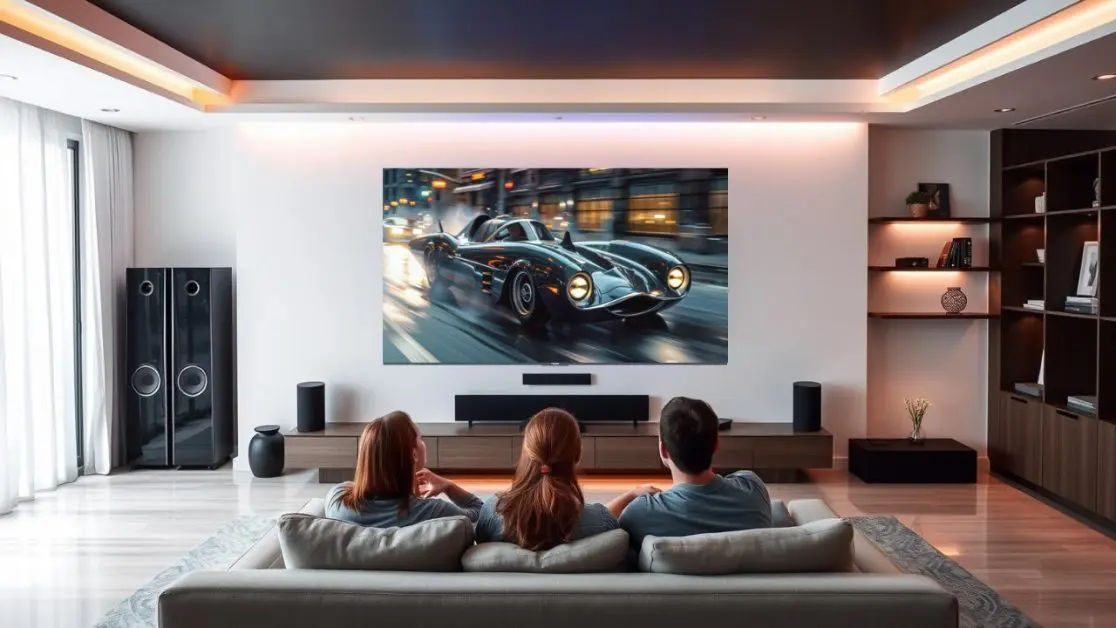
MEMC, or Motion Estimation and Motion Compensation, is primarily used to ensure onscreen movements are clearer by adding supplementary frames between the original ones. The addition of frames makes fast action scenes flow better, and smooth motion reduces judder, which are the little bumps or shakes one notices during rapid movement on screen.
Here is a simplified breakdown:
- Original Frame Rate: 24 fps (frames per second)
- With MEMC: Interpolated 60 or 120 fps
- Result: Smoother, clearer visuals
Since motion is continuous, the first frame is compared with the next frame. The TV processor analyzes the motion, speed, and direction of movement. As a result, blur and jitter are reduced.
Why Motion Smoothing is Important
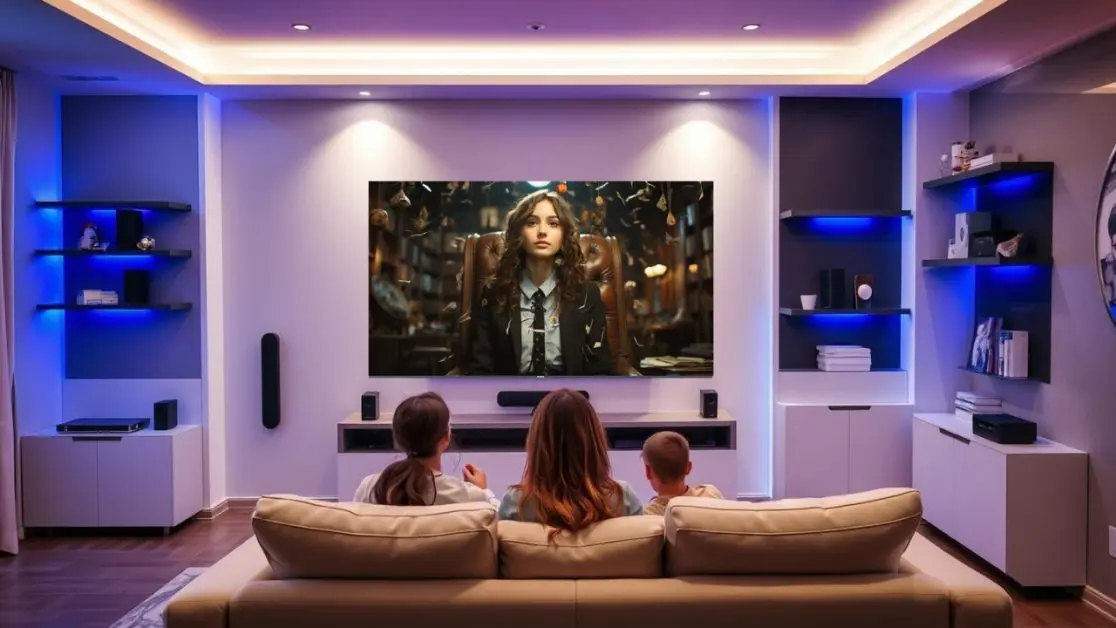
While it may take some time for several users to notice motion blur, smoother playback is something that, once you get used to it, is hard to let go of. Motion smoothing enhances the viewing experience for a number of everyday activities, such as:
1. Sports and Other Live Shows
Live sports, such as cricket, football, and F1 racing, feature fast action. Without MEMC, the ball might appear blurry, or the fast pans across the stadium might stutter. With MEMC, everything looks a lot smoother.
2. Action Movies
Those intense moments in action films can be overwhelming on non-motion-enhanced displays. High-octane films like action, sci-fi, or disaster movies benefit greatly from MEMC. Explosions, car chases, and hand-to-hand combat scenes all receive special treatment from MEMC.
3. Gaming
For gamers, the most important aspects are input lag and screen tearing. MEMC is usually an option for video playback only, but many contemporary sets use high refresh rates to pair MEMC with low latency, resulting in a more responsive and immersive gaming experience.
4. Moving Text and Camera Rotations
Even within news shows, MEMC improves the clarity of moving text, while smooth camera sweeps across beautiful landscapes in travel documentaries make the visuals more appealing.
Primary Advantages of MEMC Technology in Today’s Televisions
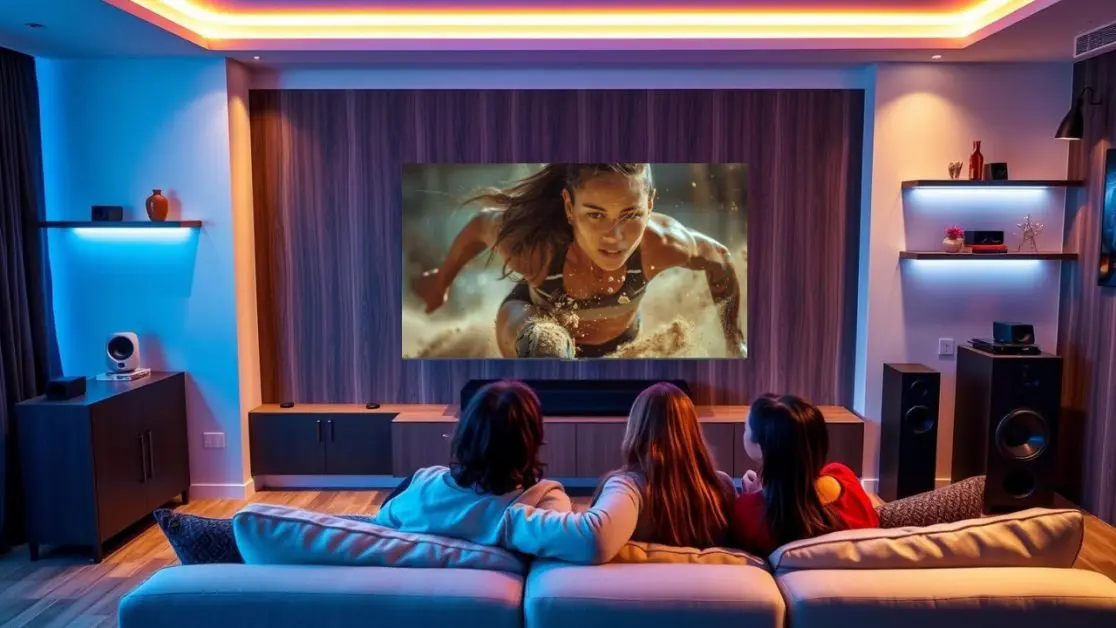
Now, let’s discuss why having MEMC is worth it:
Enhanced Sports and Action Scenes
MEMC eliminates motion blur by adding interpolated frames, resulting in clearer pictures during sports or other fast-paced movements onscreen.
Intuitive Motion Flow
Constantly smoothing every action on-screen helps MEMC achieve realism, whether for immersive dialogue scenes requiring delicate movements or action-packed movies that enhance the experience.
Improved Comfort During Long Viewing Sessions
When you binge-watch TV shows or movies for hours, effortless and smooth motion leads to less eye strain and discomfort. MEMC minimizes flicker and judder that can make viewing unpleasant.
Universal Compatibility with Different Genre Content
MEMC enhances movies, series, and streaming content in both standard and high-definition formats, ensuring smoother motion regardless of the content type.
What Are the Downsides of Technology?
Every technology has its imperfect attributes, and with MEMC, some argue that it can overdo the motion smoothing in films, leading to overly smooth imagery. The phrase “soap opera effect” often comes to mind when explaining how MEMC, while a brilliant piece of technology, can sometimes take things too far in adjusting overly smoothed cinematic content.
Most contemporary televisions allow users to modify or disable MEMC. If the effect feels off, it can easily be reversed.
When Choosing a New TV, Which Features Should You Prioritize Regarding MEMC?
If you’re looking to buy a TV with MEMC support, consider the following specifications:
| Feature | Specification |
| Refresh Rate | A refresh rate lower than 60 is rarely considered compatible with MEMC. 60 Hz is the minimum, with 120 Hz and higher enhancing smoother visuals. |
| Processor Strength | A powerful processor will enable faster frame rate interpolation with zero delays. |
| Picture Enhancement with AI | Modern AI-powered features utilize real-time technology to sharpen contrast and brightness, improving the overall viewing experience. |
| Ultra High Definition or 4K | MEMC works flawlessly with HD and 4K resolutions, enabling detailed representation without blurs. |
With smart TVs evolving, some introduce AI PQ Engines, a revolutionary technology that fine-tunes brightness, adjusts contrast automatically, and interprets frames in real time, ensuring that well-executed frames are not affected.
Does MEMC Hold Value for Daily Usage?
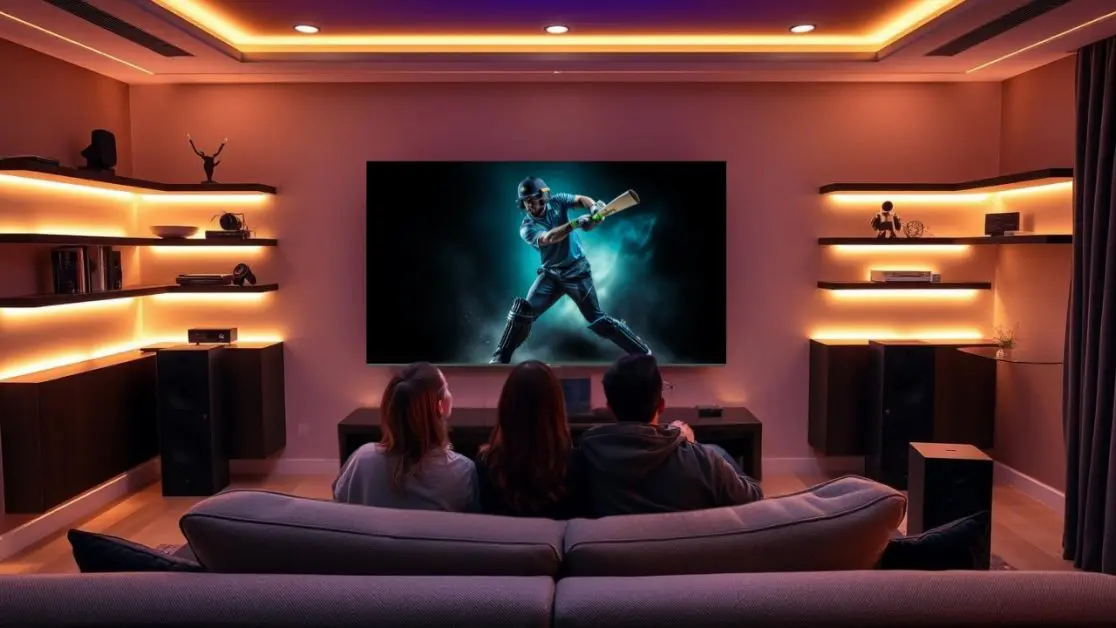
In your living room, the TV is a multi-functional device that serves various needs and caters to the entire family. Whether you’re watching the IPL match live, enjoying a movie, or streaming a nature documentary, MEMC can enhance the experience.
For Indian households, MEMC is a well-appreciated, non-vocal feature. The growing popularity of larger TVs, such as those 43 inches and above, makes blur while navigating videos more irritating. MEMC helps counter that, making it more than just a luxury feature.
How Does MEMC ‘Future-Proof’ Entertainment?
As streaming becomes more popular, the need for HD broadcasts of sporting events has risen, disrupting traditional television viewing. MEMC ensures that TVs no longer fall behind in terms of basic performance, offering resolutions and functions that keep pace with current demands.
Smart TVs equipped with MEMC and AI-powered features are customizable, modifying the content instead of simply displaying it, thus enabling solid advances in television performance. That’s what distinguishes a standard TV from a smart and proficient one.
Conclusion
While MEMC-based motion smoothing may not be the most highlighted feature of a TV, its contribution to offering a premium experience remains significant. It enhances clarity, alleviates eye fatigue, and improves the viewing experience for sports like cricket and animated movies.
With the shift towards digital and on-demand entertainment, the need for sharper and smoother motion visuals will only increase. Investing in a television that is prepared for this future, not only in terms of screen size and resolution but also in performance capabilities, is a smart move.
Haier India recognizes the changing preferences of Indian customers and has embraced motion enhancement technologies like MEMC in several of its smart TVs.
An Upgrade In Sight?
Check out Haier India’s collection of smart televisions that come with sophisticated mobile control, advanced motion smoothing, and intelligent picture processors equipped with smart features for effortless entertainment. Find the perfect television for your home at Haier India Home Appliances.

